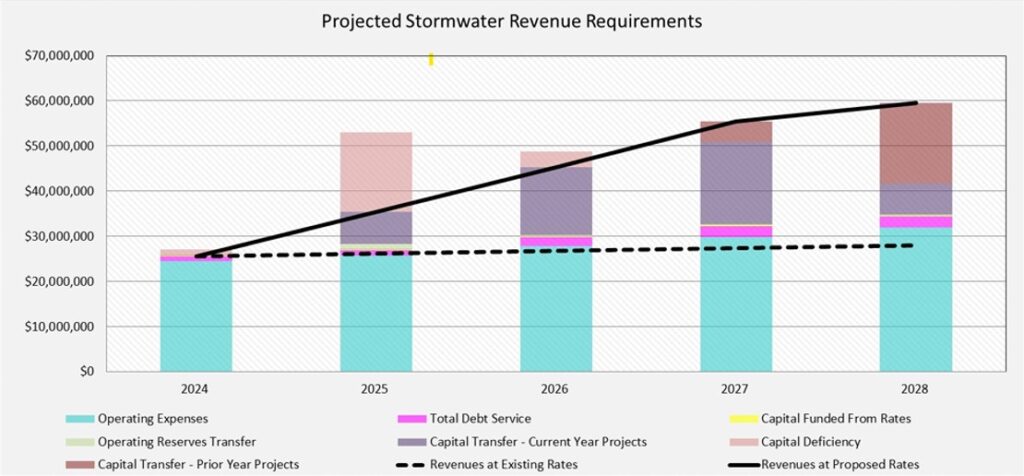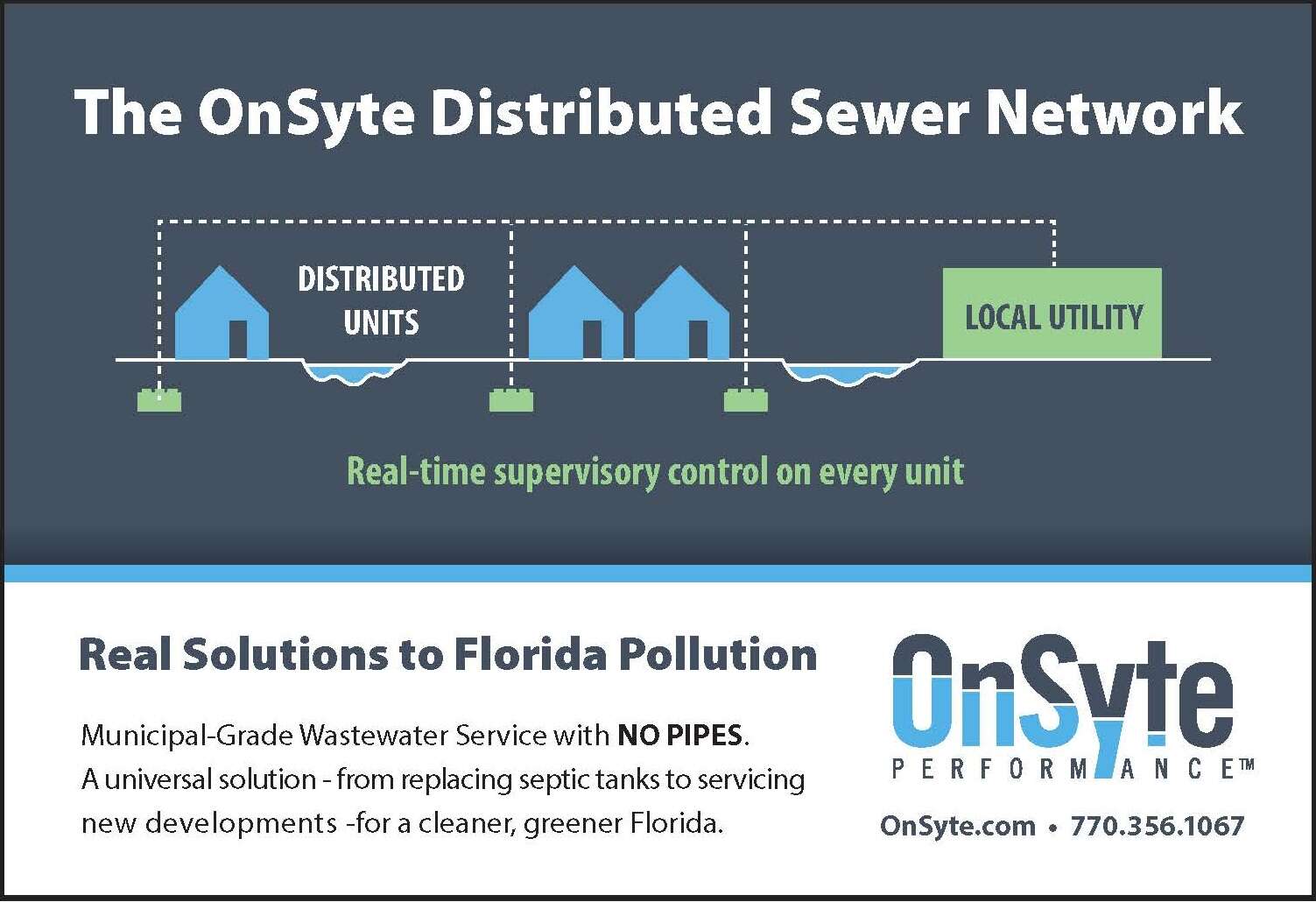By BLANCHE HARDY
The City of Orlando joined other Florida cities by recently approving an increase in its stormwater utility (SWU) fees. Hollywood, Port Orange, and Pinellas County also recently raised rates, and Deltona City Commissioners are discussing the potential of raising stormwater rates by $42 annually.
The most recent publicly available biannual Florida Stormwater Association (FSA) Stormwater Utility Report in 2022 notes there are 170 local governments that have established stormwater fees within the state. The FSA report indicates SWU fees vary, though the average fee is $8.05 per month, or $96.60 per year. In 2020, FSA reported the average fee was $7.84 a month.
Numerous factors, including fuel rates, infrastructure costs, staffing costs, National Pollutant Discharge Elimination System permit compliance, flood abatement, and a myriad of other expenses come into play. For Orlando, failing and new infrastructure, operation, and maintenance costs were prominent.

The City of Orlando first established a stormwater utility fee in 1989. The stormwater utility fee funds the operation, construction, and maintenance of stormwater devices that help reduce the amount of pollution that reaches surface waters; stormwater system planning including stormwater pipes, canals, and retention ponds; and lake management including water quality and aquatic plantings. Orlando’s rate had remained constant since 2008; the rate increase measure passed the City Council 5 to1 during a May Council meeting.
Upon approval of the rate increase, Orlando’s Mayor Buddy Dyer noted hurricane season and population growth were factors in the need to increase the fee.
“We continue to see tremendous growth across our community. With the start of hurricane season just weeks away, unprecedented rainfall and historic flooding from storm events and the continued growth we’re seeing continue to put a significant demand on our stormwater infrastructure,” he said. “As a city, maintaining these operations and planning for future needs is a critical function of our Public Works Department and Streets and Stormwater Division. Our Public Works staff has been working to educate our residents on what they can expect and what infrastructure projects are on the horizon.”
The city’s fee increase was informed by a January 2024 study conducted by Raftelis Financial Consultants, Inc. on behalf of the city. The City of Orlando Stormwater Management Program Financial Plan and Rate Study recommended stepped increases escalating from $83.94 in 2024 to $127.45 in 2028 per 1,000 ft2 of residential impervious surface, an increase of $43.41.
The stormwater utility fee is billed annually in the fall as a non-ad valorem assessment on the Orange County property tax bill and is collected through the Orange County Tax Collector Office. Non-ad valorem charges are those not based on the value of the property.
Separate fees are recommended for residential, commercial, and undeveloped land uses. As the diagram from the report shows, the current fee was inadequate to cover the revenues needed to continue to operate. Corey Knight, Public Works Director, told Councilmembers the city, “had to borrow $17 million just to fund our stormwater program.”

Currently, the city’s stormwater utility fee is imposed on a parcel basis. The annual SWU fee for developed property is based on the overall impervious square footage within a parcel per equivalent residential unit. The proposed rate adjustment will continue to be calculated using an annual fee per square foot of impervious surface area, or any surface area that does not allow water to infiltrate into the soil, for all developed properties.
Impervious surface area is used to determine how much runoff a parcel contributes to the system. In the city’s case and in general it is frequently difficult for the public to understand when assessing a fee increase that the square footage of their dwelling may not represent their property’s impervious surface area.


























